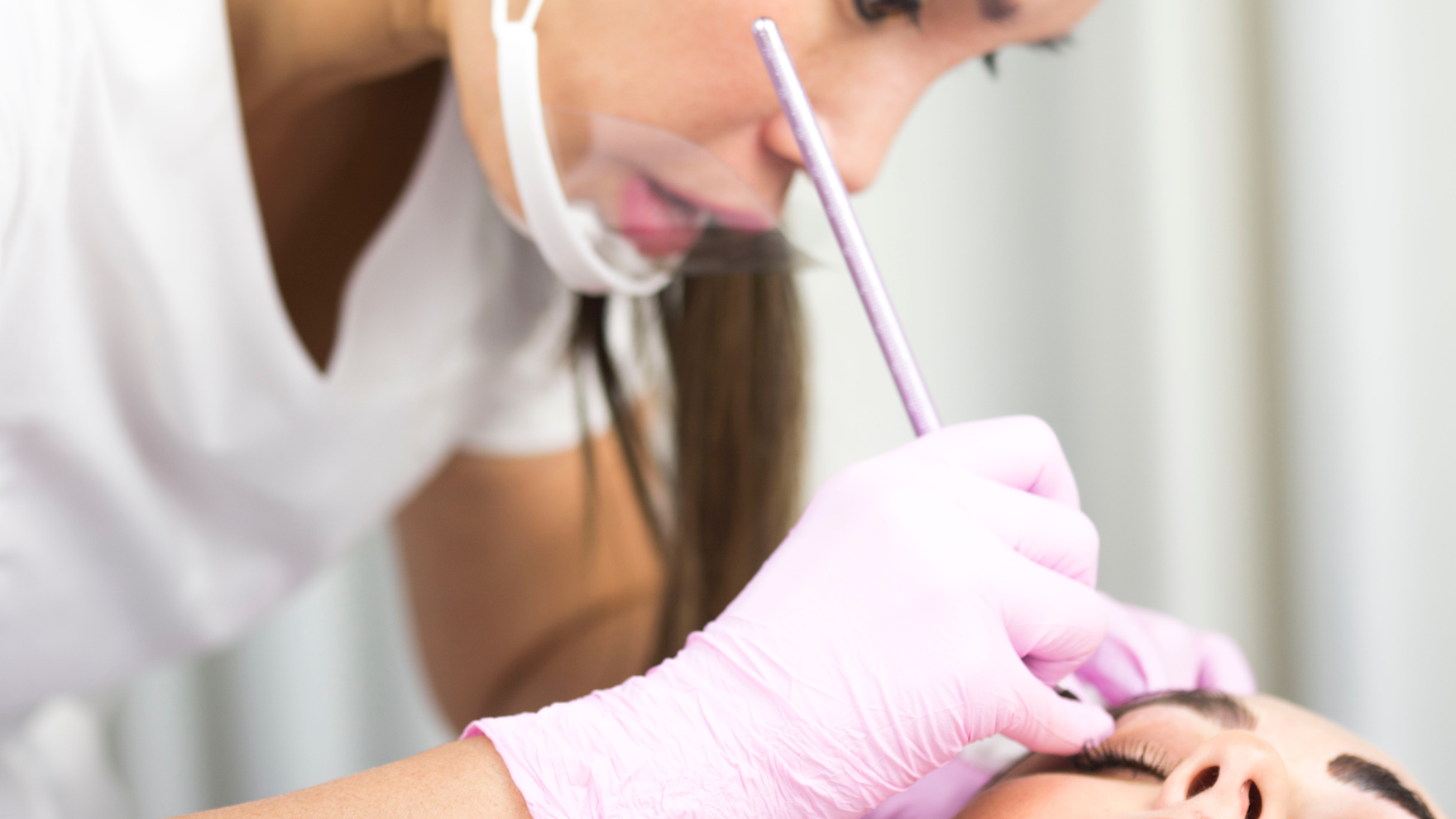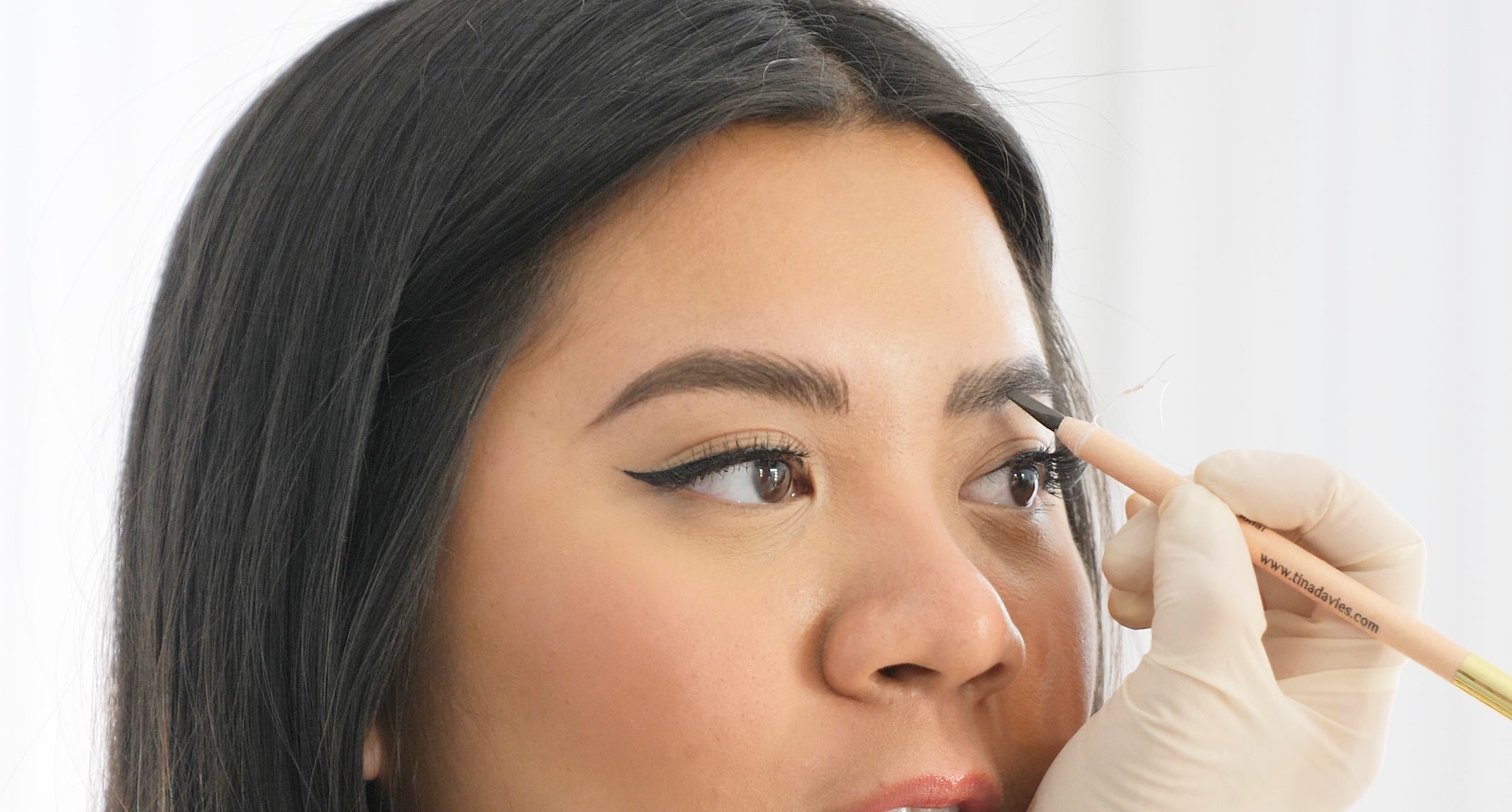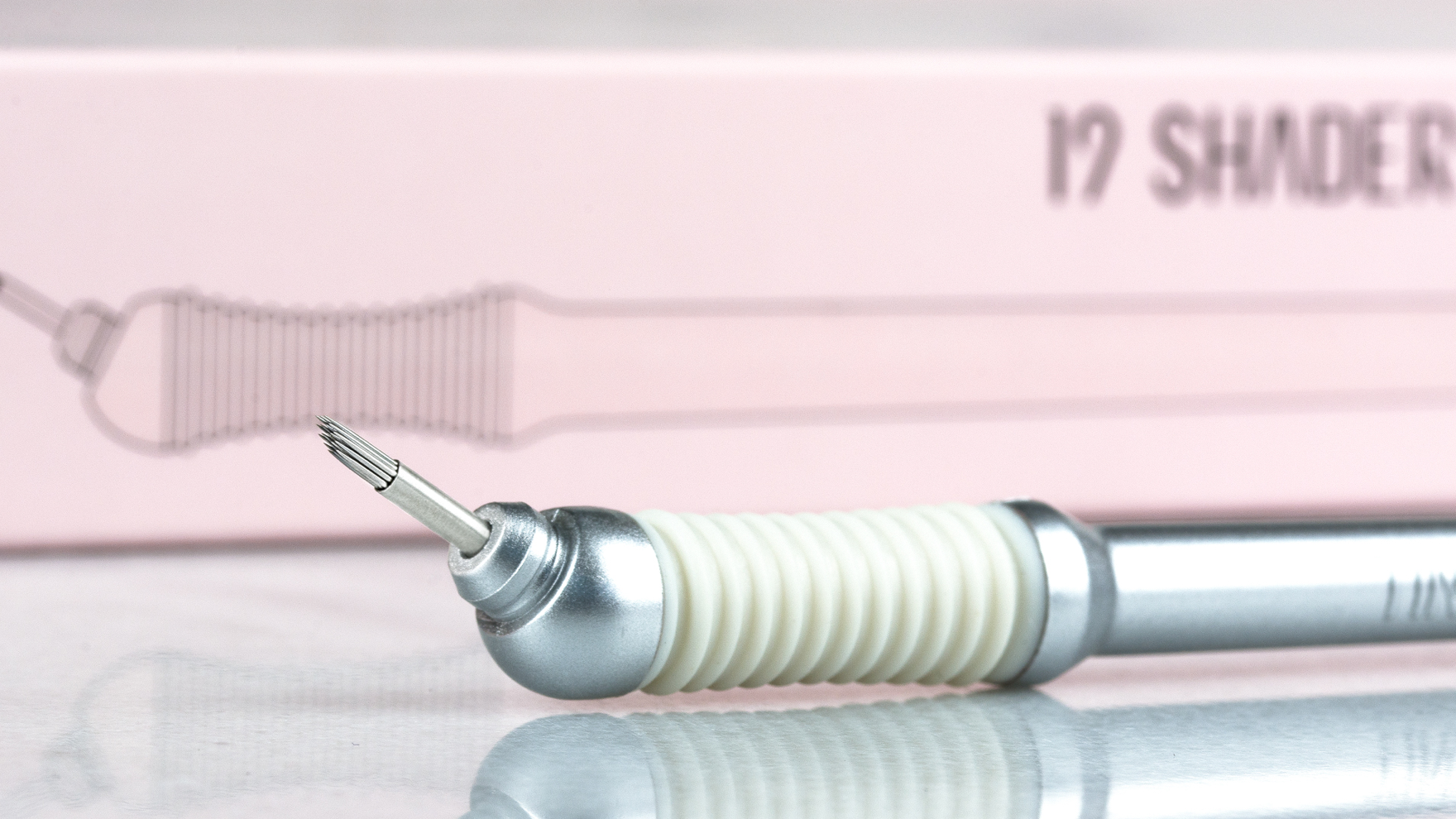
What is microblading, actually?
Although microblading is one of the top beauty trends of today, it has really only become mainstream in the last few years. We've noticed various celebrities like Bella Thorne and Mandy Moore talking about their experiences with microblading, and really bringing it to the forefront of the beauty and media industries. While people have been using permanent makeup and cosmetic tattooing to enhance their appearance for decades, any new beauty trend is bound to bring up questions.
So since microblading is such a new beauty procedure, many clients still have A LOT of questions about the process. We've heard it referred to as microblading, microfeathering and micropigmentation, but these words are not as interchangeable as one might think. So in this post we want to address a few questions and common misconceptions about microblading, that you can share with potential clients, or anyone you know who might be curious about the process!
Here are a few of our most frequent microblading Q&A's.
What is microblading exactly and how is it different than permanent makeup?Permanent Makeup is a form of cosmetic tattooing, also known as micropigmentation. It has been around since at least the 20th century, but maybe even longer There’s even evidence that Queen Cleopatra of ancient Egypt had cosmetic tattooing! It is a cosmetic technique where pigment is inserted into the skin to resemble makeup. It is typically achieved using a machine or manual hand tool to create permanent enhancements to the eyebrows, eyes, lips, and body.
Microblading is a technique of cosmetic tattooing performed specifically on the eyebrows. Like earlier methods of cosmetic tattooing, it is done by manually depositing pigment into the second layer of the skin (dermis). But what makes it truly unique is the hand tool used. The unique formation of needles allows the artist to create the look of real eyebrow hairs by tattooing very fine hair-like strokes in the skin.
Do you have to shave off your eyebrows to get it done?Does Microblading Scar?
No. Microblading itself will not cause scarring. What can cause scarring after a microblading procedure is picking at the healing skin. This is why it is extremely important to make sure your client knows to NOT pick at any scabs or flaking skin after they have had a microblading procedure. Picking could result in the loss of pigment as well as scarring.
How Much Does Microblading Cost?Having a microblading procedure can be quite costly. A procedure can cost anywhere from $300 - $1500, depending on the skill/experience of the artist, where you are located, and on the demand for this procedure in your location.
What Can I Expect After a Microblading Procedure?
The healing process after a microblading procedure varies from client to client based on many factors. This could include, but is not limited to: the artist's technique, pigments used, aftercare instructions, whether or not shading was done, as well as just overall how someone's body and skin reacts to the procedure. Some of the most common things clients can expect after a microblading procedure are:
- Tenderness in the area
- Pink or redness around the affected area
- Swelling
- Thickening and darkening of the area
- Moderate to thick scabbing 3-4 days after the procedure
- Scabs will begin to flake off anytime between days 5 - 10
- After scabs flake off, pigment color and strokes will look light, grey, and blurry
- After area is fully healed (4 weeks after procedure) the pigment will return to full color
As with any cosmetic or tattoo procedures, the best way to find a certified, reputable artist in your area is often by word-of-mouth referrals or legitimate customer reviews. You can also do some investigative research of your own on local artists. We've created a guide outlining the Top Minimum Standards every microblading artist should be following, to help you in your search. You can read more about it here HERE. We also have a great directory that is growing every day, featuring artists from all over the world called FindMicroblading.com. This site showcases artist's certifications, client photos, and customer reviews of their services, making it easy to identify great artists near you! Click HERE to go to the directory.
How Long Does Microblading Last?
It really depends on the client and the health of their skin, but microblading procedures should last anywhere from 1 to 3 years. Microblading is not supposed to last forever and will require touch-ups when the pigment begins to fade.
Microblading is a form of semi-permanent makeup and is subject to fading over time due to exfoliation, sun exposure and skincare products that may increase exfoliation of the skin. Microblading should last anywhere from 1 year to 3 years before requiring a touch-up.
How Long Does Microblading Take to Heal?Just like a typical skin wound, microblading takes about 10 - 14 days to heal before it can get completely wet without disturbing the skin or the healing process. This includes heavy exercise and sweating, showering, and face down swimming. The area will be fully healed 30 days after the procedure was done.
Does Microblading Hurt?Because you are numbed prior to the procedure, the level of pain experienced can be minimized, but in all honesty, there is definitely some discomfort involved. The best way to describe the discomfort felt during a microblading procedure would be similar to that of a continuous cat scratch.
The skin near the front of your eyebrow is thicker, so this will likely be a lot less painful than the tail of your eyebrow. The tail of your eyebrow sits very close to the temple, where the skin is very thin. The thinner the skin, the more likely you will experience a higher level of discomfort. That being said, everyone's skin and pain threshold is different, but during the procedure, there shouldn't be a point where the pain becomes unbearable.
Who Should Get Microblading Done?Many factors decipher whether or not a person is a good candidate for microblading. The most crucial deciding factors depend on the client's skin condition and health. If they have any pre-existing health conditions or are on any medications, it may be best for the client to wait for a microblading procedure. Click HERE to read our blog post if you make a good microblading candidate!




Leave a comment
This site is protected by hCaptcha and the hCaptcha Privacy Policy and Terms of Service apply.